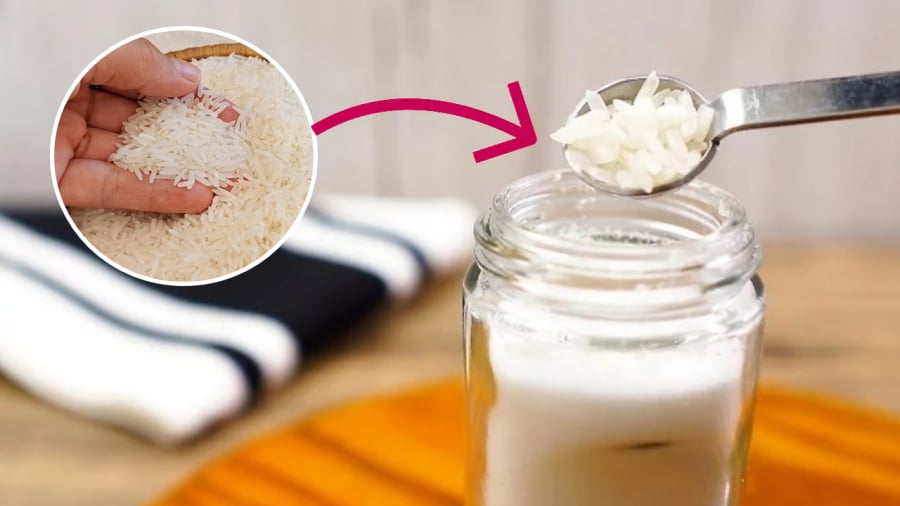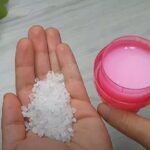Keep Your Salt Dry with Rice
Salt, especially iodized salt, tends to get lumpy, damp, and clumpy. These changes make it difficult to use, and the salt container looks less hygienic. While damp salt is still usable, it’s not ideal.
To keep your salt dry and clump-free, try using rice. Place some rice in a small cloth bag or wrap it in a piece of tissue paper, and put this bundle into your salt container. Rice acts as a desiccant, absorbing moisture and keeping the salt dry.

Rice helps keep salt dry and free from moisture.
Additionally, you can line the bottom of the salt container with a paper towel and pour salt on top. The paper will absorb moisture, ensuring the salt remains dry.
Another option is to include a silica gel packet in the salt container to keep it dry and clump-free.
Tips for Storing Other Spices in Your Kitchen
– Sugar Storage Tip
Sugar can also get lumpy and attract ants if not stored properly. To keep ants at bay, place a thin slice of lemon on the lid or around the sugar container. Additionally, putting a slice of bread into the sugar will help absorb moisture, keeping the sugar dry and clump-free.
– Peppercorn Storage Tip
Pre-ground pepper loses its aroma over time. It’s best to store whole peppercorns and grind them as needed to retain their fresh flavor.
Keep the unused portion of peppercorns in a glass jar with a tight-fitting lid, and store it in a cool, dry, and ventilated area.
– Dried Onion and Garlic Storage Tip
Onions and garlic can quickly spoil and sprout if not stored correctly. In rural areas, people often hang these bulbs above the stove to keep them dry, and the soot that accumulates on the outside helps prevent bacterial infiltration.
However, this method may not be feasible for most modern households. An alternative is to hang onions and garlic in a cool, dry, and well-ventilated area, occasionally bringing them out into the sun to dry.
– Ginger Storage Tip
Ginger can be stored in a cool, dry, and shaded place to prevent spoilage and sprouting. For convenience, crush the garlic, place it in a clean jar, and store it in the refrigerator. If you want to store ginger for an extended period, freeze crushed garlic in an ice cube tray. Once frozen, pop out the garlic cubes, place them in a container, and store them in the freezer. Use as needed.





































